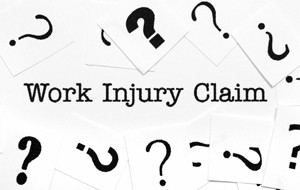Time Limit For Filing A California Workers Compensation Case

The time limit for bringing legal action in court is also known as the Statute of Limitations (or SOL). The SOL is the number of years a particular legal action must be brought within or else be barred forever. Different types of legal actions have different statutes of limitation periods. For example, in California the general rule is that an action for negligence causing personal injury is 2 years. It is good public policy to end the rights of those who have been wronged for the sake of getting on with things. The SOL is therefore often called a statute of repose. Once the time limit has expired, unless legal action has already been filed in the appropriate court of law, the right to bring the claim is lost forever. There are of course exceptions to SOL. The exceptions exist because of a stronger or more important public policy interest that favors keeping the potential lawsuit alive. When an action is allowed to be brought after the applicable SOL period, the SOL is said to have been “tolled.” Tolling can occur under a number of different circumstances depending on the type of claim sought to be preserved. In this article we will discuss the time limits for filing a California Workers Compensation Case and some common tolling rules. This article is general information only and should not be relied upon by a layperson (or non-attorney) to determine when to file a case. Only an attorney can give you advise about such matters after hearing the particulars of your situation. If you need to speak to a work accident lawyer near rancho cucamonga, contact me at 909-962-8415 or visit workerscomplawyerie.com to submit an email to receive a call.
California Workers Comp. Case Statute of Limitation Rules
The rules that define the time limit for bringing a workers’ compensation claim at the Workers’ Compensation Appeals Board (or WCAB) are seemingly straightforward but are wrought with numerous sweeping exceptions. The basic SOL is 1 year from the date the injury occurred. For specific injuries, such as those that happen at a certain time and place, the rule is easily applied. However, for cumulative trauma injuries (ones that happen over a period of time from repetitive work activities), the rule is not so easily applied. As a general rule (with many intricacies not discussed here), the SOL for a cumulative trauma begins to run on the last date of injuries exposure (the last day the worker was exposed to the occupational hazard causing the health condition). As previously stated, the 1 or one year statute of repose is not without a number of exceptions some of which can be highly factual in nature. Therefore, always consult a lawyer before assuming that an exception exists in your claim.
Situations Where SOL Can Be Extended Beyond 1 Year
There are a number of rules that can continue the limitations period beyond 1 year from the date the injury occurred on. It should be noted right up front that whether these rules that extent the time period to file a case in court require an analysis of the facts each individual claim by a licensed professional. The following general rules could possibly extend the filing period:
- The insurance carrier provides medical treatment/care to the injured worker. This will extend the time to file the action in court to 5 years from the injury date.
- The injured party is under the age of 18 on the date of injury. In this case, the 1 year will start to count when the person reaches the age of majority.
- Where the employee is not provided a DWC-1 Claim Form upon reporting their injury to their employer AND the employee was not aware of the procedures for obtaining workers compensation benefits.
- The injured worker is not aware that they are even injured. This is the situation with toxic exposure (special exceptions exist for asbestos cases beyond the scope of this article). In such cases, the one year period starts counting on the date that the hurt employee discovers the injury and that it is industrial related.
All situations are different, and each person needs to consult with a lawyer immediately to make sure their legal rights are properly protected. There may be other basis for obtaining relief from the limitation period so do not be discouraged if your case does not fall into one of the above exceptions to the 1 year rule.
Get Law Firm Help For Your Work Injury Case!
Here at our law office serving the Inland Empire including Rancho Cucamonga CA we represent workers who want to file claims for workers’ comp. If you are experience a health condition that you attribute to your situation on the job, you can call our office to speak directly to me the attorney about your case. Call me at 909-962-8414 and we will discuss the possibility of my professional services protecting your rights. All consults are absolutely free of charge with no obligation to retain my firm. Furthermore, when we do take a case, no fees are due unless and until we obtain monetary recovery on your behalf.

